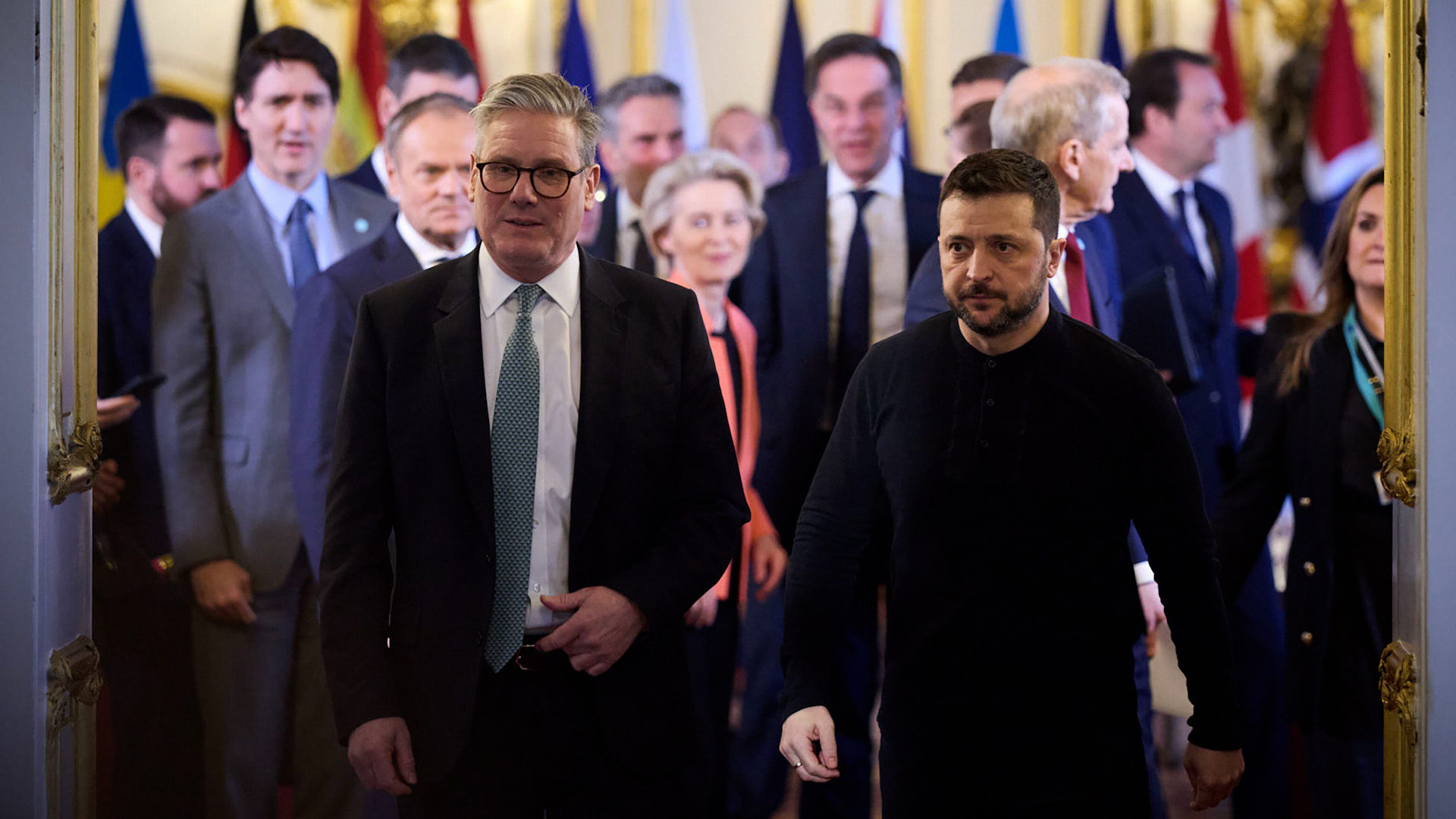Doubt cast on success of French president's plans for a ceasefire in Ukraine
French President Emmanuel Macron has reportedly told the newspaper Le Figaro that Paris and London are working on a joint plan for a one-month partial ceasefire in Ukraine.
The key word there is "partial".
What is being proposed, so we are told, is a temporary truce – but only covering the air space over Ukraine, maritime areas like the Black Sea and Sea of Azov, and attacks on either side's energy infrastructure.
At any one time, there are hundreds of thousands of Russian and Ukrainian troops facing each other, tens of thousands of drones in the air and thousands of artillery shells being fired back and forth.
To monitor that effectively would severely stretch Sir Keir Starmer's "Coalition of the Willing", particularly with the Trump administration's tepid appetite for any sort of US military involvement.
The US made it clear at the recent Nato Defence Ministers meeting, the Munich Security Conference – and in that mauling of President Zelensky in the Oval Office – that Europe needs to be prepared to do more of the heavy lifting.
Uncle Sam will no longer be "Uncle Sucker", as US Secretary of Defence Pete Hegseth put it.
Could this ceasefire idea work?
Who would take part, how would it be commanded and most importantly, would Russia comply?
It should be said from the outset, of course, that Volodymyr Zelensky opposes the idea flat out.
He has repeatedly said – as he did to JD Vance last weekend in that angry exchange – that Ukraine believes Russia would simply use any sort of truce to re-arm, reorganise and prepare to re-attack.
For its part, the UK Government also seemed a little surprised when the plan surfaced publicly.
Armed Forces Minister Luke Pollard told the BBC it was "not a plan that we currently recognise".
Defence analyst and retired Air Vice-Marshal Sean Bell is a former RAF Harrier pilot and a senior RAF commander.
He says the job of ceasefire monitoring traditionally falls to United Nations forces, not countries that have a historic allegiance to one side.
"You want any forces standing between warring parties to be unbiased, not to take sides, they are just there to keep the peace," he said.
"As soon as you have British, French, Polish, any other forces patrolling, they're not United Nations, they're not ambivalent.
"They are on Ukraine's side and, therefore, they wouldn't be viewed by Russia as being impartial."

Monitoring a ceasefire would be a huge task
AVM Bell said Russia's military has been decimated by three years of fighting in Ukraine and that would be an advantage for any force sent to monitor the ceasefire.
However, monitoring the air space over Ukraine alone would be an immense task requiring vast numbers of jets and refueling tankers.
"Just maintaining two aircraft [on an air patrol] can often use a dozen [other] aircraft, plus refueling assets, probably two or three of those as well," he explained.
"To cover the whole of a 24-hour shift, you also need some form of airborne early warning radar that can give an idea of what's happening around you, plus space and intelligence assets as well.
"And that's just to keep one pair of aircraft, looking. Now you start to look at the size of Ukraine, the size of the border we're looking at here. It will be a huge undertaking."
The former RAF commander, who led air components in both Iraq and Afghanistan, said President Macron's proposal could be done.
But he believes it is also designed as a signal to the Trump administration that Europe is serious about ending the war in Ukraine.
"I suspect they're not trying to come up with a detailed plan with every single contingency," he said.
"What they're trying to do is address what they believe is the core problem that America has with Europe, which is a lack of commitment to their own defence."









